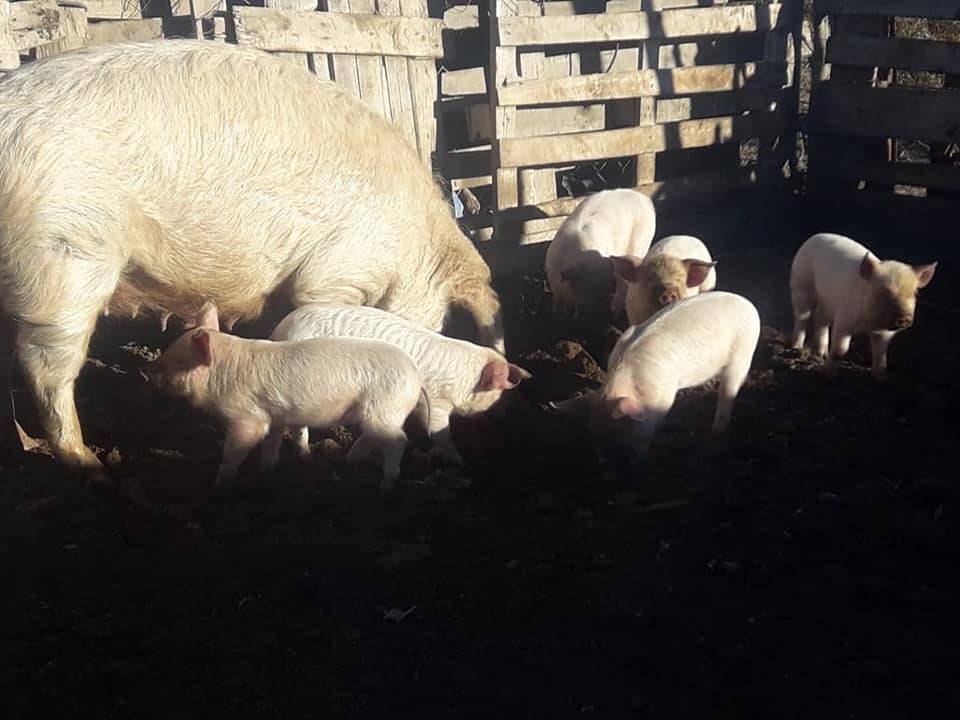Swine production in the southern line of Rio Negro, as in other parts of the province, was developed mainly as an alternative to the different climatic events that have occurred in recent years.

Pig production in the southern line of Rio Negro, as in other parts of the Province, was developed mainly as an alternative to the different climatic events that have occurred in recent years, which negatively affected the main production, sheep farming.
Therefore, it was installed informally, in family production strata, with a reduced number of mothers (4-5 sows) and where there are problems related to low productivity levels as a consequence of herd management deficiencies, nutritional deficiencies, inadequate facilities and zoonotic diseases, which require diagnosis by the Regional Unit of Epidemiology and Environmental Health (U.R.E.S.A.) and the National Service of Health and Agrifood Quality (SENASA).
Thus, within the framework of the FONTAGRO project "Adaptation to climate change in family livestock farming", the Technical Office of Los Menucos and the Valcheta Extension Agency of INTA planned a seminar in Sierra Colorada, with the participation of the Municipality, the U.R.E.S.A. of Los Menucos and SENASA of Valcheta.
The purpose of the event was to deal with the epidemiological situation in 4 family pig farms in the town of Sierra Colorada and, together with the local Municipality, to make the slaughtering of animals at the slaughterhouse effective.
This day involved awareness-raising training on the main diseases that pigs share with humans, known as zoonoses, and the individual epidemiological analysis of all the animals present in the farms.
It was agreed with the Municipality to provide the facilities of the local slaughterhouse to extract the tissue samples necessary to carry out the enzymatic digestion tests and thus diagnose one of the main parasitic diseases, called Trichinosis. This diagnosis provides safety to pork consumers, whose only destination is the town of Sierra Colorada.




